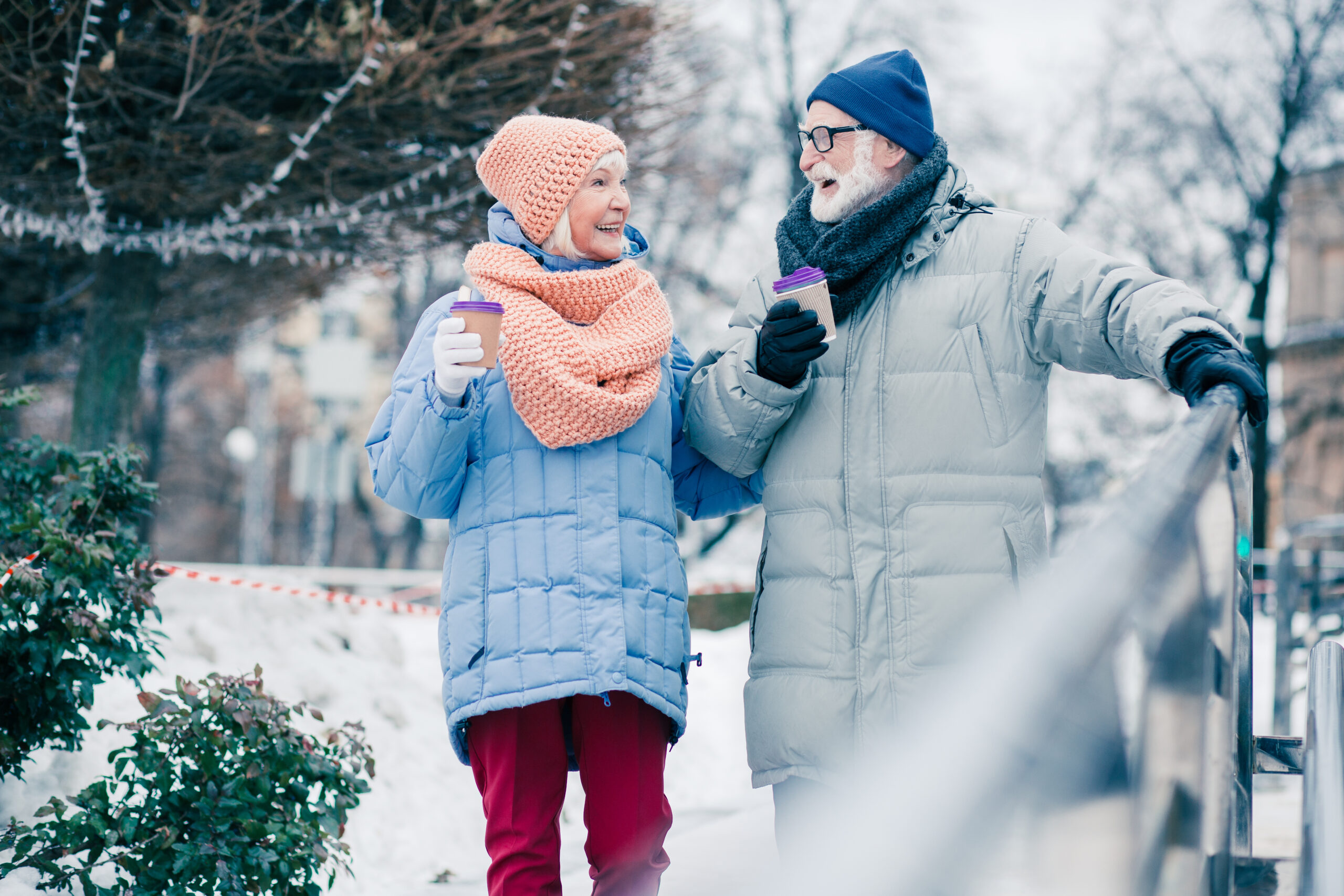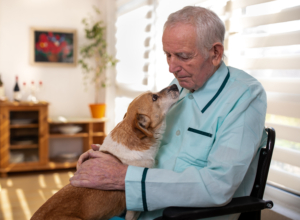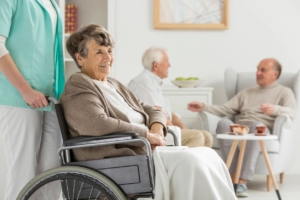As winter approaches, many of us are excited to cozy up by the fire and enjoy the holiday season. However, for those caring for aging parents, this time of year can bring added stress and worry. Winter weather can pose significant risks to our elderly loved ones, from slips and falls to illness and isolation. As caregivers, it’s important to be prepared and take steps to ensure their safety and comfort during these colder months. In this blog post, we’ve compiled eight practical and compassionate tips to help you care for your aging parents this winter.
These tips are designed to help you prepare for the colder weather and keep your loved ones safe and warm. Whether you’re a seasoned caregiver or just starting to navigate this role, these tips will help you feel more confident and empowered during this challenging time.
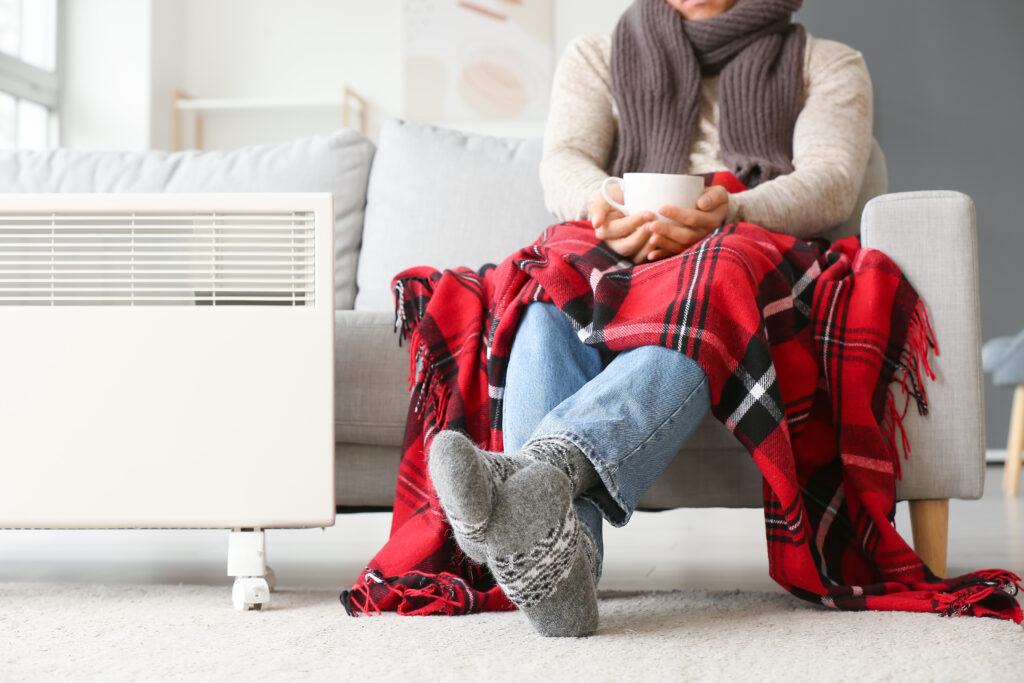
1. Ensure Proper Heating: Keep your parent’s home warm and comfortable by maintaining the heating system and ensuring it’s working properly. Check and clean filters and vents, and make sure space heaters are used safely. Keep extra blankets and warm clothing on hand in case of a power outage. Space heaters are highly discouraged please be careful especially around pets, children, and aging adults that may forget they are on.
Many elderly people have issues regulating their body temperature, and exposure to cold temperatures can lead to serious health complications.
Home temperatures 60-65 degrees are too cool. This could cause hypothermia in aging adults. The home temperature should be at least 68 degrees.
Also, update their insulation and weatherstripping to prevent drafts and improve energy efficiency. If the heating system fails, consider renting space heaters or finding temporary housing for your loved one until it’s resolved.
Hypothermia is a medical emergency. According to the Institute on Aging, hypothermia affects the brain and makes it difficult to think clearly, so people may not realize what is happening and that they need help. It’s important to be aware of warning signs and early symptoms, including:
- Cold feet and hands
- Puffy or swollen face
- Pale skin
- Shivering or shaking
- Slowed or slurred speech
- Feeling sleepy, angry, or confused
If the exposure to cold continues, later symptoms of hypothermia can include stiff and jerky arm and leg movements, slow heartbeat or breathing, loss of consciousness, and eventually, death.
Aging loved ones with Dementia bring increased concerns for cold weather. A person with dementia can forget to dress properly, forget a space heater is left on. Depending on the temperature it may take as little as 10-15 minutes for hypothermia to set in.

2. Reduce the Risk of Falls: Take steps to minimize the risk of falls, a leading cause of injury among seniors. Ensure walkways are clear of clutter and well-lit and consider adding grab bars and non-slip mats in the bathroom. Wear proper footwear with good traction and avoid walking outside on icy surfaces. Coming in the house with wet boots can also put our aging loved ones at risk for taking a tumble. A non-skid mat located where they can take their boots off may help. Watch for puddles.
Winter weather increases the risk of slips and falls for everyone, but particularly for the elderly, who may already struggle with mobility issues. Clear sidewalks and driveways of snow and ice regularly and keep salt or sand on hand for added traction if needed. Consider hiring a snow removal service to make sure your loved one’s outdoor spaces are safe to walk on.
3. Combat Seasonal Depression: Winter can be a difficult time for many people, and seniors are no exception. Loneliness and isolation can lead to feelings of depression and anxiety. Make an effort to stay connected with your loved ones and encourage social activities, such as group classes or outings, playing cards, crafts or other social activities they enjoy participating in.
Be mindful of seasonal affective disorder (SAD): Winter can bring on feelings of sadness or depression in anyone, but it can be particularly prevalent in the elderly. Seasonal affective disorder (SAD) is a type of depression that tends to occur around the same time each year, usually in the winter months. Keep an eye out for changes in mood or behavior in your loved ones, consider consulting with a healthcare provider if necessary.
A lack of Vitamin D can make this situation worse. Less time out in the sun does not help. You can get too much Vitamin D so don’t take this matter into your own hands. If you are depleted, you may need more than the recommended daily allowance. You should seek the assistance of your medical provider to be tested to see if you are Vitamin D deficient and if so, what is the best way to treat it.
4. Stock Up on Essentials: Plan ahead and ensure your parent has an adequate supply of food, medications, and other necessities. Consider meal delivery services or grocery delivery to help ease the burden during inclement weather. Make sure plenty of water is available. Our aging adults don’t have the level of thirst that the rest of us may have, and it is very easy to become dehydrated in the winter months. Becoming dehydrated could lead to a urinary tract infection or other illness leading to confusion and other symptoms.
Winter storms can cause power outages and make it difficult to get out of the house, so it’s important to stock up on essentials before bad weather hits. Consider purchasing non-perishable food items that are easy to prepare in case of power loss.
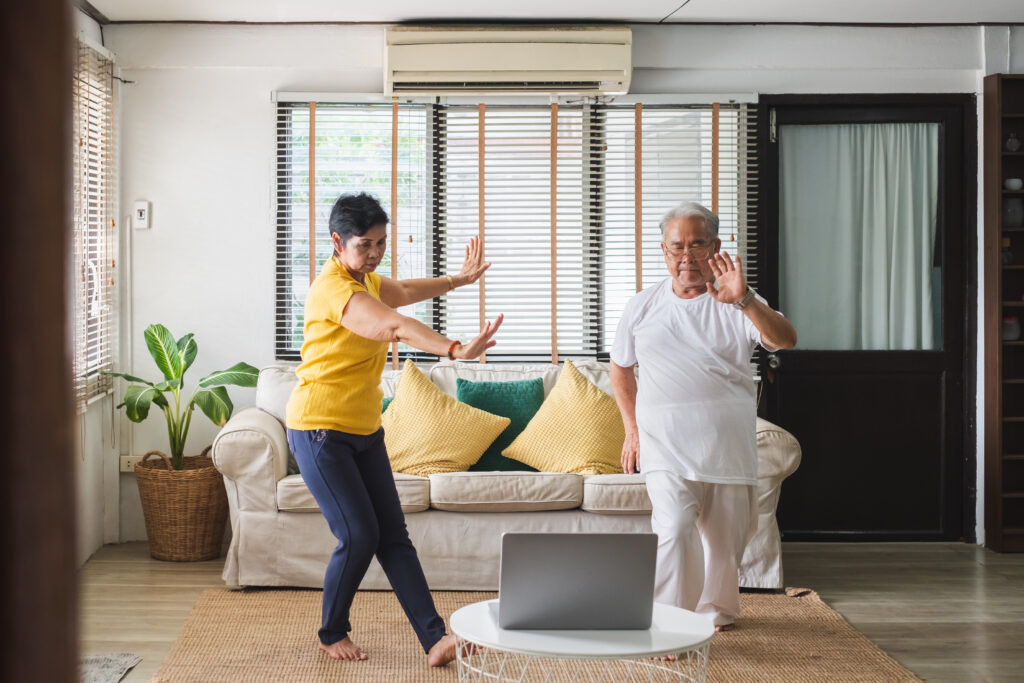
5. Stay Active: Staying active is essential for maintaining physical and mental health, particularly during the winter months when it’s tempting to stay indoors and hibernate.
Motion is lotion for our aging adults. Physical activity is important for maintaining both physical and mental health. Encourage your parent to get regular exercise, even if it’s just taking a daily walk around their home. Consider indoor exercise classes or activities to stay active during colder weather. If they are still using a DVD player, you can provide exercise videos for them if technology may be a challenge.
Encourage your loved ones to stay active, even during the winter months. Exercise can help maintain strength and mobility, which can reduce the risk of falls and overall discomfort. Consider accompanying them on walks around the neighborhood, or finding an indoor exercise class that suits their abilities.
6. Prepare for Emergencies: In case of power outages or other emergencies, have a plan in place for your parent’s care. Keep emergency supplies handy, including flashlights, extra batteries, and a first aid kit. Ensure your parent knows who to call in case of an emergency and have a backup plan in place if their regular caregiver is unavailable. Please consider getting our free emergency checklist and “To Go” folder contents to have everything you need to ensure proper medical attention in case you have to leave your home in an emergency.
In the event of a power outage or other emergency, make sure your aging parents have essential supplies on hand. These might include bottled water, blankets, flashlights, a generator and batteries. Create an emergency preparedness kit for your loved one and make sure they keep it in an accessible location. Check out our resource section for more tips and strategies.
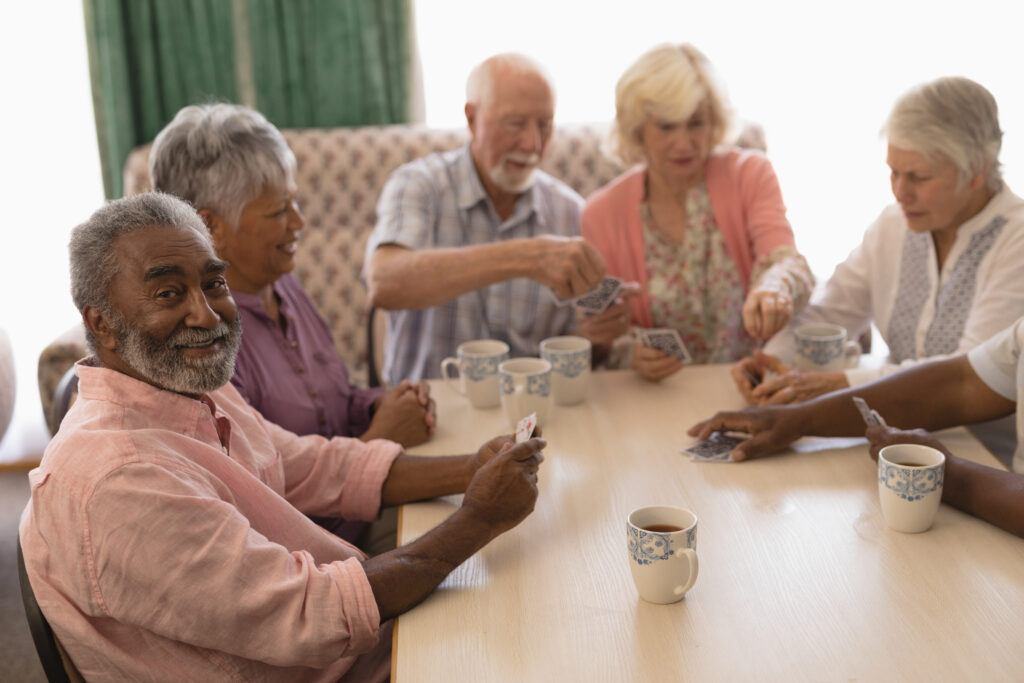
7. Stay Connected
The winter months can be isolating, particularly for aging adults who may be unable to leave their homes easily. To combat loneliness and social isolation, make sure your aging parents stay connected with friends and family members. Encourage them to participate in virtual events, connect with loved ones via social media or video calls, or join online groups or clubs that share their interests.
Winter weather can also lead to isolation, which can be harmful to both physical and mental health. Make sure to check in with your aging parents regularly. If they are not using technology that can keep you in touch, try to arrange at least weekly visits from friends or family members to provide social interaction and support. Talk to family and friends to discuss a phone schedule where each person may call 1x per week, but this will give them several calls each week to stay connected.
If your aging loved ones are “snowbirds” make sure they are prepared to be away from home for an extended period of time. Does the house need any winterizing measures? Do they have enough medications to cover them while they are gone? Some advantage plans would not cover medications out of the service area so make sure they get enough before they leave.
8. Seek Assistance if Needed
Finally, don’t be afraid to seek assistance if you need it. Winter caregiving can be overwhelming, and it’s essential to recognize when you need help. Consider hiring a professional caregiver such as a patient advocate to provide additional support or taking advantage of community resources such as meal delivery or transportation services. Don’t hesitate to reach out to family members or friends for help, either – caregiving is a team effort, and it’s okay to ask for help when you need it.
Conclusion:
As winter approaches, many of us look forward to the holidays and cozy nights by the fire. However, for those caring for aging parents, winter can bring added stress and worry. The cold weather and harsh conditions can pose a significant risk to our elderly loved ones, who may be more vulnerable to falls, illness, and other adverse effects of the winter season.
Caring for aging parents during the winter months can be daunting, but it doesn’t have to be. By following these eight practical and compassionate tips, you can help your loved ones stay safe and comfortable during the cold winter season. Remember to prioritize proper heating, reduce the risk of falls, stay active, stock up on essentials, stay connected, and seek assistance if needed. With these tips in mind, you can provide the best possible care for your aging parents and make this winter a little bit brighter for everyone involved.
Thanks for stopping by and spending a few minutes with us. If you have an aging adult in your life, please share this information with them and check on them often.
Don’t forget we have our Senior Care Summit, 2024 starting on March 1, 2024. 28 Topics and 28 speakers. It will be virtual. This will be your ultimate resource guide to caring for your aging loved one. Registration begins February 1, 2024. You can register and learn more on our website. Here is the link to the Senior Summit.
Take care and see you back here soon. For more information on this topic please check out our resource section. There is more in depth information shared in our resources.
Pam and Linda
Your Nurse Advocates
“Compassionate care for aging parents, peace of mind for adult children.”
Resources
Senior Care Summit-Registration Available beginning February 1, 2024
https://www.nia.nih.gov/health/safety/cold-weather-safety-older-adults
https://order.nia.nih.gov/publication/stay-safe-in-cold-weather-easy-to-read-booklet?_gl=1*wqvlju*_ga*NTk5NzkwMjA5LjE2OTY0NjEyNDQ.*_ga_TK3CE80DBZ*MTcwNTMzNTk5NC4yNC4xLjE3MDUzMzYzMTYuMTAuMC4w Free Booklet Cold Weather Safety.
https://www.nia.nih.gov/news/hypothermia-cold-weather-hazard

